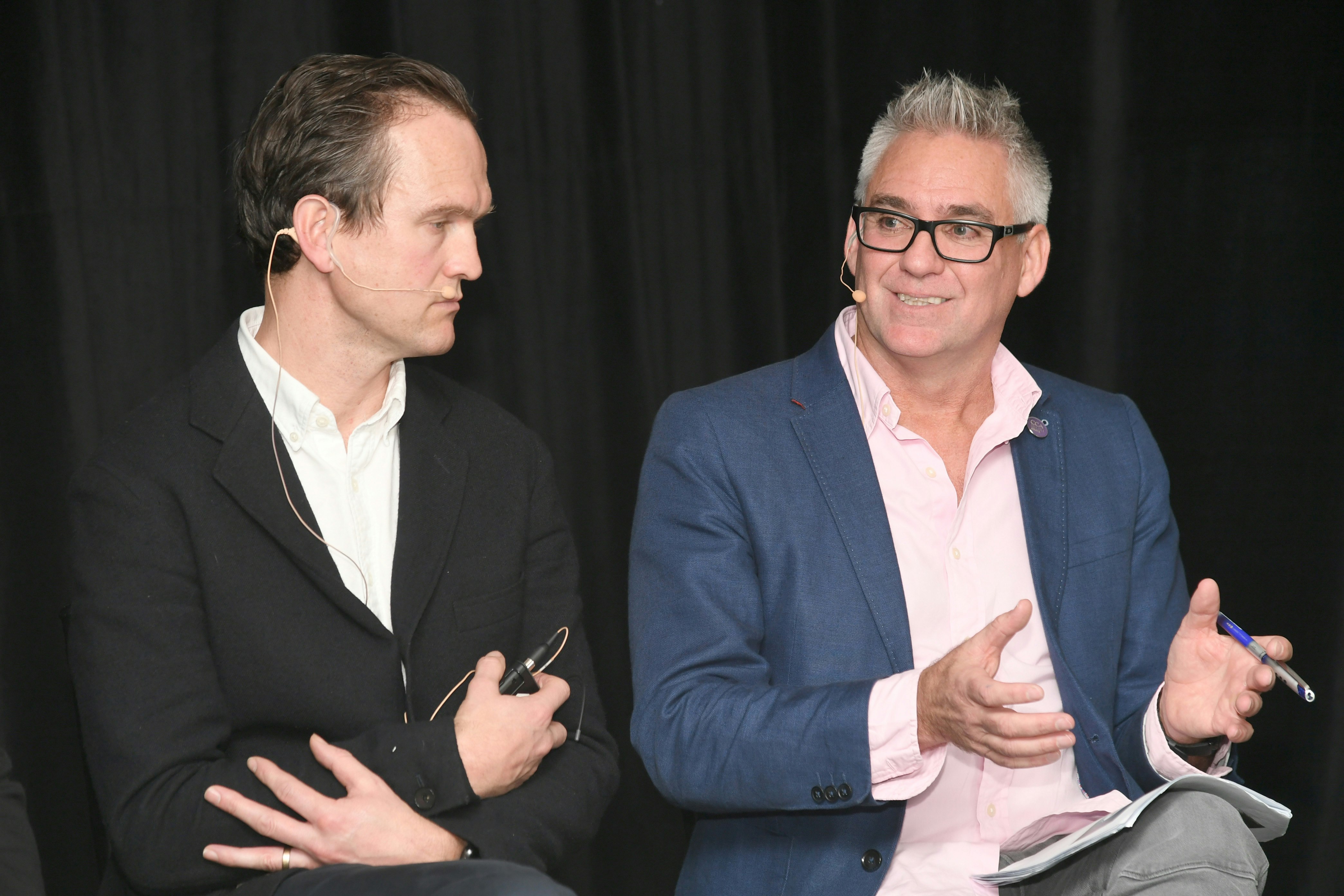do you want to view
Big Business and the Circular Economy
This post is part of a series where our co-founder Steven Korner will be talking about a range of topics – from design, to what it’s like to engineer a product in the sustainability space.
Steven Korner: Big Business and the Circular Economy
Last week I was asked to be on a panel at Beyond the Bin, where I sat with Auckland council members, zero waste experts and the good people over at Coca Cola Amatil. We discussed tackling NZ’s plastic packaging problem and Coca-Cola Amatil New Zealand’s exciting announcement that by the end of 2019 all of their plastic bottles under a litre will be made from 100% recycled materials.

It takes a lot for a large organisation to stand up and admit that they’re part of one of the most talked-about problems in our country and around the world today; so I am excited to see Coca-Cola has not only acknowledged their role but taken a massive step forward towards fixing a broken system. This is just a part of Coca-Cola’s greater global commitment to a ‘world without waste’.
Globally, Coca-Cola committed to manufacturing half of their packaging from recycled materials by 2030. Coca-Cola NZ are now one of the first countries to not only achieve but exceed this. Richard Schlasberg, General Manager of Coca-Cola Oceania, said: “As one of New Zealand’s largest beverage companies, we have a responsibility to be part of the solution to the plastic waste crisis.”
As the co-founder and CEO of a product-based organisation, I couldn’t agree more with this statement. All organisations have the responsibility to design and create for a positive future. However, larger organisations, in particular, have the opportunity to have the greatest impact and shape the future of their industry. Not only themselves but smaller manufacturers, consumers and recyclers.
Coca-Cola are a great example of this, as the move to recycled materials will avoid using approximately 2,900 tonnes of virgin plastic. The world we live in has changed and the traditional packaging to landfill is no longer an option and Coca-Cola is now are know driving market/industry dynamics for circular use of plastics. Demonstrating product stewardship and paving the way for a more sustainable future.
 All bottles less than 1 Litre and water bottles of all size will be made from 100% recycled materials by the end of 2019
All bottles less than 1 Litre and water bottles of all size will be made from 100% recycled materials by the end of 2019
In New Zealand, the press around recycling and the circular economy can be particularly frightful, but this is another big win for NZ. Evidence that we can grow our onshore capabilities and develop products and recycling systems that are creating a circular economy here and now.
Moving forward, we need to change the value we place on plastic packaging at every stage of its life. First, we need to increase the onus on organisations to accept responsibility for their products at the end of their life. For example, in Germany, there is legislation that says if you sell a product you must have a recovery plan. Coca-Cola have also demonstrated their commitment with a goal to collect and recycle a bottle or can for every one they sell.
Secondly, we need to change the way we talk about plastic and other recyclables from ‘waste’ to resources and materials. Compostable materials are growing in popularity but they still end up having one lifecycle as a useful product. With plastic, we can implement an effective circular economy model if manufacturers and users can identify the value that these materials hold.
I believe the best way to do this is a container deposit scheme (CDS). We’ve seen the resounding success of these in Australia, such as South Australia’s currently boasting a return rate of 76.4%. With a CDS organisation’s can contribute to the collection of their products, receive the materials back for reprocessing while importantly increasing the value of a bottle or can to the consumer. We can reduce litter, keep materials in use for longer and create a circular economy here in NZ.
 (Left) Method Co-founder Steven Korner
(Left) Method Co-founder Steven Korner
Profile: Steven Korner
Steven Korner graduated from the University of Canterbury with first-class honours in Mechanical Engineering.
After leading the neonatal care product design team at Fisher and Paykel, and inspired by buying Total Bins, he and his wife India decided to create their own company and their own product.
Steven took an analytical approach with Method – spending weeks researching, prototyping, and gaining customer insights to decipher what could really make a difference in the waste market.
As co-founder and CEO, he has spearheaded Method’s innovative product research, development and design, and is the creator of Method’s award-winning 60L Office Recycling Bin.